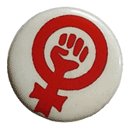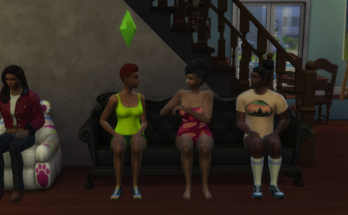By Gina Magnuson
The primary question I sought to answer was “How does ACParadise facilitate the ideal cosplay experience?” My method was primarily interview-based, relying on a series of questions sent to cosplayers via personal messages. I contacted a group of fifteen cosplayers who were featured on the website’s front page, trying to accumulate as diverse a group as possible. Of the fifteen, eleven responded to my questions. Here is my question is it appears in the message:
Responses to the initial question: “Why do you Cosplay?” were primarily focused on the costume-making aspect of the event, citing personal interest in fashion design and DIY as their primary motivation. Some cosplayers had been cosplaying since the age of ten or had parents who motivated their children to participate in cosplaying. To others, the act of making a costume was paying homage to the film, anime or television series. To quote a user called “befu”: “The biggest draw of cosplay is the challenge of taking something that’s 2D and mostly likely not realistic and make it real. It’s something I can do with my friends, significant other and have a blast…[it’s] stressful, yet somehow very rewarding.” Below is a response from “DemonLordEtna.”
Most participants appreciated ACParadise. Some knew the moderators of ACParadise on a personal level and noted their helpfulness and receptiveness to questions and critiques. ACParadise is “more regulated than [other art-based sharing sites like] DeviantArt” and “connects you with industries” and “cons,” or conventions. Many note a sense of community felt on ACParadise that is not as noticeably present on other cosplay sites like “cosplaylab.” I learned that ACParadise was initially made for female cosplayers and one participant called “Celcius” said she believed the majority of cosplayers are female.
In answering the third question on ACParadise as a feminist space, notions of cosplaying within the space were generally positive. No one I interviewed had experienced hate on ACParadise, and most of these women felt comfortable posting images of themselves in revealing costumes without fear of backlash. However, one participant who called herself “Ryoko Dono” noted that once a picture taken from AC Paradise was posted on a Marvel Comics Facebook fanpage, she received only negative feedback from viewers. This is one of “Ryoko Dono’s” answers:
Many participants had not encountered racism on ACParadise, but some noted the internet is generally a racist space. When approaching cosplay, an issue that sprung up was (to quote “befu”) emulating “the perfect ‘anime girl.’” “Celcius” a user who identified as female and of color noted: “I’ve personally never come across any racist issues on ACP (and luckily not in the cosplay world either). People of many ethnic backgrounds upload pictures. In all to answer your question, I see ACP as a non-racist space. It’s willingly accepting of any type of cosplayers uploading pictures as long as the pictures aren’t offensive. ”
In conclusion, ACParadise facilitates the cosplaying experience by allowing for social connections via photo sharing, commenting, and promoting cosplay meet-ups and events. The site is regulated and, thus, caters to women in search of a safe space to post photos of themselves in costume. The mods of the site are also willing to connect on a personal level with members, providing a more personalized, friend-to-friend experience.




It was exciting and surprising to find that you would deem ACParadise a safe space. I would think that since people upload images of themselves, the presence of bodies on display combined with people hiding behind computer screens would make for some conflict surrounding gender and race. I guess it helps for there to be a common ground between users, especially when that common ground is creative and has an offline component.
What I find most interesting about your research is the fact that the user Ryoko Dono, in leaving the safe space that is ACParadise and entering Facebook, was immediately faced with negativity. That observation in and of itself reveals how safe ACParadise really is, and that fact I think aids the space in being a welcoming space for the cosplay community.
I think your ethnography is very well-written, especially with analyzing the site users’ messages. It is definitely interesting to read that although the users notice the Internet as a racist space in general and feel lucky to be a part of a non-racist space. I was fascinated to see your conclusion, especially because I would have guessed from the surface that the costumes play community would be a safe space for women.